Sony Electronics president Phil Molyneux defies the 'sea of sameness'

Yesterday, during an exclusive press briefing that was also available by invitation-only webcast, Sony Electronics president Phil Molyneux detailed how the company would embrace the connected anytime, anywhere and on-anything era. He also addressed, and not necessarily answered, questions about Sony's Internet TV and tablet strategies. If one word defines his plan for the consumer electronics company: Differentiation. I attended the event at Sony Electronics' corporate headquarters in northern San Diego, which is about a 30-minute drive from my apartment. Sony Electronics is the largest of Sony's six US organizations.
Molyneux, a 24-year Sony executive, assumed his current responsibilities just six months ago. During his first two months Molyneux traveled to 15 states, visiting 250 retail stores. He wanted to understand Sony's retail situation in the United States. "You can go pretty much into any retailer in the US and you'll be faced with this wall of LCD TVs. I call that the 'sea of sameness.' From a consumer's perspective, you look at that wall and this line of LCD products...how can you decide which product to purchase?"
Stunning Android growth visualized in new video

It's new to me, anyway. The Android Developers created video, which posted three days ago, uses maps to show how Google's mobile operating system grew from its release in October 2008 through January 2011. I wonder how an iPhone 4 visualization would compare. Earlier this month, Gartner reported that Android sales increased 888.8 percent year over year in 2010. This video is what that growth looks like. Credit where due, I spotted the video on CoolSmartphone.
Google launches its next assault on "cumbersome, legacy" Microsoft Office
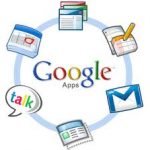
In the race to offer Microsoft Office functionality in the cloud, Google has beaten its rival getting a product out of development beta and into production release. Today Google announced global availability of Google Cloud Connect for Microsoft Office, which went into beta late last year. The technology builds off Google acquisition of DocVerse.
Microsoft is working on its own solution, Office 365, which is beta testing and is expected to go v1 sometime this year. For now, Google can claim first to market advantage as it looks to convert more Office users to its cloud services. The cloud is increasingly important to Microsoft. Last year, COO Kevin Turner said that 70 percent of cloud wins are new customers.
Apple celebrates Steve Jobs' birthday with dual- and quad-core MacBook Pros
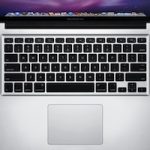
Today, Apple finally brought MacBook Pro up to speed with Windows laptops. After skipping the last generation of i Core chips, Apple adopted new Intel "Sandy Bridge" processors for some MacBook Pro models. In a surprising, but rumored move, Apple swapped out nVidia graphics for integrated Intel and AMD graphics. Apple updated all three MacBook Pro lines -- 13.3-inch, 15.4-inch and 17-inch. Apple also introduced a new peripheral port called "Thunderbolt."
The new configurations represent hefty upgrades across the board -- for example, bumping up storage capacity in the entry level MacBook Pro from 250GB to 320GB and doubling the memory on some other models. However, in a disappointing move, Apple did not upgrade 13-inch models' display resolution from 1200 x 800 to match MacBook Air's 1366 x 768.
Is News Corp.'s 'The Daily' giving you more blues than news?

Every single person I know with an iPad who has used News Corp.'s "The Daily" complains about persistent crashes and really, really, really, slow update times. Now PaidContent reports that the initial two-week free introduction promotion is going on and on and on, kind of like those wait times for news content to download. The Daily Publisher Greg Clayman says a decision on when to end free access has yet to be determined. Say, wasn't News Corp. planning to charge for this thing? You know, 99 cents a week -- better value than McDonalds' Dollar Menu?
The Daily launched on February 2nd in New York City, with News Corp. CEO Rupert Murdoch leading off the event. It's a digital newspaper initially available for iPad, but a version for Android 3.0 "Honeycomb" tablets could release as soon as a few months. Some advice to News Corp.: Launch the Android version sooner as beta and shake out the nastiness before going v1. Hey, the thing is a mobile application, after all. Why not treat its development that way?
Google fights Facebook for your mobile identity

Who owns your mobile/online identity? Stated differently: Who owns your mobile relationships?
I've been thinking more about both questions since learning last night that Google is pulling Facebook contact sync with delivery of Android 2.3.3 to Nexus S smartphones. In a statement, a Google spokesperson described the feature removal as "special-case handling of Facebook contacts" for "Nexus S and future lead devices." Google's reasoning: Facebook doesn't allow exporting of contact data to other services. There is no "reciprocity." Maybe, but there is more going on here than the openness, or not, of contact syncing. Google is prepping for a larger battle, particularly with Facebook, over who controls your online identity, particularly as it roams from PC to mobile devices.
Google, don't take away my Facebook friends
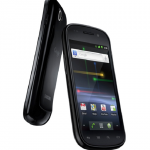
Earlier today, Google started sending out Android 2.3.3 to Nexus One and Nexus S smartphones. I haven't received the over-the-air update, and frankly don't want it. I'm pissed as hell that Google will take away something I have and use: Facebook contact sync. I bought Nexus S to get the newest Android version, always, not to have functionality most other smartphones have taken away. As available before the update installs, the Android Facebook app syncs friends information and profile photos to the Android address book. Google's OS update removes the functionality from Nexus S smartphones.
Google gives good reasons for nixing Facebook contact sync, and I agree with them in principle. Facebook is a one-way street for data; it easily goes in but is difficult to extract. But that's a problem between Facebook and Google. I and other Nexus S owners shouldn't be battleground between them.
Amazon Prime just got better: Free movie and TV show streaming

One of Amazon's best values is its Prime service, which costs $79 a year. For that fee, buyers get free two-day shipping or overnight packages for $3.99 per item. Today, Amazon added something more: free streaming of 5,000 movies or TV shows. Or so the retailer claims. I only see 1,688 movies and 484 TV shows currently available on Amazon Instant Video.
Amazon offers a surpringly good selection, too; that is sure to give Netflix some unexpected and needed competition in the streaming market, and Prime is a better value. Netflix charges $7.99 per month (before taxes) for movie and TV show streaming, or minimum $95.88 a year. Not only does Prime cost less but it offers more in the aforementioned shipping costs -- and there's something else: Amazon allows the sharing of Prime among four accounts in the household. If, say, you're a college student with roomies sharing Primes, the value just got whole lots better.
It's time Apple came clean about Steve Jobs' health
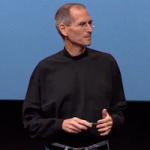
Apple can no longer remain silent about its CEO's health. This is no longer a debate about corporate responsibility or fair disclosure to shareholders. Now that Paparazzi are following Jobs and taking photos or videos of him outside the cancer treatment facility, Apple must respond. Silence is bad for Apple, bad for its shareholders and quite possibly damaging to Jobs' recovery. How would you feel about seeing your photos in the National Enquirer? How would it affect your cancer recovery?
Jobs announced indefinite medical leave from Apple on January 17. "My family and I would deeply appreciate respect for our privacy," Jobs requested. That clearly isn't happening. Yesterday, Radar Online posted a video of Jobs leaving the Stanford Cancer Center in Palo Alto, Calif. The video was shot 13 days earlier. Last week, the Enquirer published photos of Jobs outside the same facility. Out of respect to Jobs' recovery and privacy, I won't link to either the photos or video. If you want to see them, Bing or Google.
5 reasons Macs will never outsell Windows PCs

Apple may be the most talked about tech company in geekdom and on Wall Street. The brand is hot, but for all the hype Macintosh is not. Sure Mac sales are way up, as is Apple's personal computer market share -- at least compared to May 2001 when CEO Steve Jobs talked about topping 5 percent share when opening the first company-owned retail store in McLean, Virginia. Ten years later, Jobs' has his 5 percent, but Windows PC sales dwarf Macintosh, and there absolutely are no signs of change coming anytime soon.
During fourth-quarter 2010, Apple's PC market share fell sequentially, dropping to fifth place in US market share -- from third place according to IDC (10.4 percent to 8.7 percent) and from fourth by Gartner's reckoning (10.6 percent to 9.7 percent). Combined Windows PC market share is still about 90 percent, and let's be brutally honest: Windows PCs are used pretty much everywhere.
iPad is not a PC
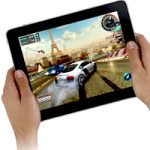
Last week, DisplaySearch joined Canalys classifying iPad as a personal computer. Canalys claims that iPad lifts Apple to third place in global PC market share. DisplaySearch puts Apple No. 1 in the United States by similar reckoning. The Apple fan club of bloggers and journalists delighted in the DisplaySearch data, gifting Apple with "its No.1 headlines." I write to correct the record about Macs outselling Windows PCs. They don't, and you can put your wishful thinking back in the draw or closet from whence it came. Apple's tablet is not a PC.
In August 2010, I asked: "Is Apple the real US PC market share leader -- or soon will be?" That could only be if iPad classified as a PC. I write posts like that one to get people thinking, to look at something from a different perspective. Also, based on iPad's functionality and available applications, it was legitimate consideration -- Apple's market share would be so much greater if iPad was a PC.
Best Buy takes XOOM preorders -- get yours for (gasp) $800, not $600
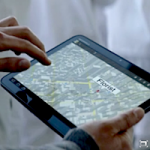
So much for the $600 WiFi-only Motorola XOOM tablet, gadget geeks pine for. While Moto may have promised the lower-cost model, there are no signs it's coming this week. Best Buy has started taking preorders for the 3G/4G/WiFi model for (cough, cough) $799.99, available February 24 -- that is based on earlier leaked information. The higher-cost XOOM requires (cough, cough) Verizon cellular contract and (cough, cough) one month's service required to turn on WiFi capabilities.
Can you say price gouging? Best Buy isn't taking preorders online. Shoppers must go to stores to cough up 800 bucks. Here, in California, applying 9.95 percent tax puts the price at nearly $880 out the door.
3 things XOOM and other tablets need to succeed
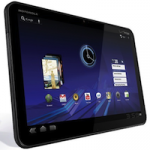
There are close to 90 different tablets announced for 2011 delivery. Some of the hottest models, like the Motorola XOOM, are weeks away from availability. Meanwhile, hype continues as fervently as ever about iPad 2. In such a competitive market, with overwhelming number of choices, there are going to be losers -- and lots of them. Is there a formula for success?
Earlier today, I asked Stephen Baker, NPD's vice president of industry analysis, three things tablet manufacturers/retailers need do to be successful. One of the three I most expected didn't make the list (more on that later). Baker is unusual among industry analysts for his no-nonsense common sense about retail. Tablets aren't just tactile in how they're used. People will want to touch and hold them before buying them, which means retail distribution. Besides something new needs to be seen before purchasing; it's retail marketing 101 stuff.
US Consumers are replacing PCs with smartphones and tablets for common tasks

Make no mistake, smartphones and tablets are disrupting typical PC behavior. The real question: Will changing behavior slow PC sales? It's among the questions to ask, following the release earlier today of NPD report "Evolving Technology Trends: PC Activities on Non-PC Devices."
According to NPD, about 35 percent of US smartphone owners use email less on their PC now. Similarly, about 30 percent of US tablet owners say they email and browse the Internet less on the PC; 28 percent don't use PC social networking services as much. Welcome to the post-PC era, or at least it's beginnings.
Gartner: 2011 is year of the smartphone, not tablet
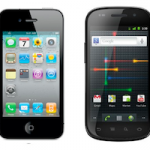
The 2010s are rapidly shaping up to be like the 1990s, but with smartphones replacing PCs as the objects of want. This week's Mobile World Congress buzzed with excitement that felt like Comdex 1995. The next day's hottest device announcement eclipsed the day's before. Single-core processor today is obsolete to tomorrow's dual-core, which is outdated a day later by quad-core -- or that's how it feels.
Things are changing so fast, some manufacturers can only keep up by announcing the next big thing. Yesterday, veteran Mac journalist Jim Dalrymple chided Research in Motion: "Shut up and ship." He observed that RIM talks lots about new tablets -- "that's three generations of PlayBook tablets announced in five months, and we still haven't seen a single product make it to market." The excitement about mobile devices and pace that faster phones are shipping and new applications releasing are among the many reasons that last week I asserted: "The PC era is over." To be clear: Change of eras doesn't mean the end of the PC just its rapidly decreasing relevance before cloud-connected devices.
Joe's Bio
Joe Wilcox is BetaNews executive editor. His motto: Change the rules. Joe is a former CNET News staff writer, JupiterResearch senior analyst, and Ziff Davis Enterprise Microsoft Watch editor.
Ethics Statement© 1998-2025 BetaNews, Inc. All Rights Reserved. Privacy Policy - Cookie Policy.
